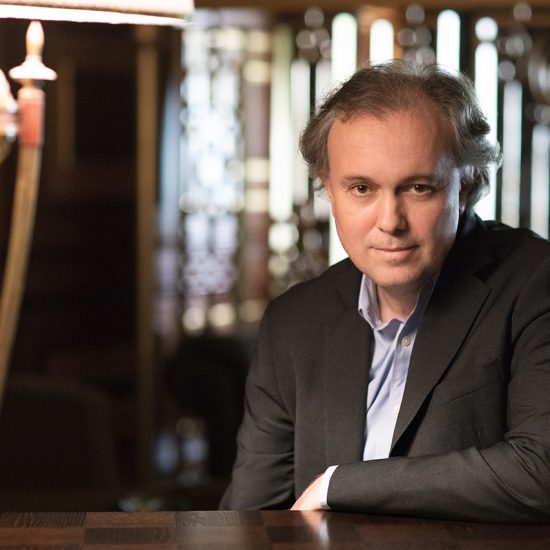
It isn’t the first time that imprisoned Palestinian activist Marwan Barghouti has written a controversial comment-article for a major newspaper in the United States. In fact, it isn’t even the first time that, in giving him a platform in the western media, an American newspaper has glossed over some details of the life of a man who is now 13 years into five life sentences handed down by an Israeli court in 2004.
On Tuesday, The New York Times was called out by its own public editor. It was, Liz Spayd wrote, vital to “fully identify the biography and credentials of authors [to] help people make judgements about the opinions they’re reading”.
But behind the smokescreen of protest from Israel this week over the “skimping” on the details of Barghouti’s author’s biography in the Times is a glimpse of an altogether more tantalising prospect – that Barghouti, orchestrator of a mass hunger-strike this week among his fellow prisoners in Israel, may be shaping up to fulfil his long-touted potential as the Palestinian Mandela.
Marwan Hasib Ibrahim Barghouti was born into the extended family of the Barghouti clan in the village of Kobar, Ramallah, on June 6, 1959. That year also saw the birth of Fatah, the Palestinian national liberation organisation, which Barghouti joined in 1974, at the age of 15.
He was jailed for the first time in 1978, spending four years in prison for membership in an armed group. He put the time to good use, learning English and Hebrew, and finished his schooling and, upon his release in 1983, enrolled in Birzeit University to study history and political science. It was at Birzeit that he met his future wife, lawyer Fadwa Ibrahim, whom he married in 1984. They have four children.
The foundations of Barghouti’s political credibility within Fatah and the wider Palestinian community were laid three years later, when he rose to prominence as a leader during the 1987 uprising that became known as the First Intifada. Though the Palestinian revolt against Israel’s occupation of the West Bank and Gaza would drag on for five more bloody years, Barghouti’s role was terminated in 1987, when he was exiled to Jordan.
It was seven long years before he was able to return in 1994, under the terms of the Oslo Accords signed the previous year between the Palestine Liberation Organisation and Israel. Two years later he was elected to the new Palestinian Legislative Council.
But hamstrung politics would soon give way again to violence. As leader of the Tanzim, Fatah’s armed wing, Barghouti played a prominent role during the Second Intifada. This exploded in September 2000, in the wake of the collapse of the Middle East Peace Summit at Camp David and following the provocative visit by Ariel Sharon, at that time the leader of Israel’s Likud party, to the contested precinct that is the home of the Al-Aqsa mosque. This, Barghouti later said, was “the straw that broke the camel’s back”.
Barghouti became a wanted man, his capture ordered by a personal decree by then prime minister Sharon, according to an investigation last year by liberal-leaning Israeli newspaper Haaretz, and this was the moment he chose to make his first appearance in the American press. In January 2002, billed only as “general secretary of Fatah on the West Bank”, he staked his claim as a force to be reckoned with in Palestinian politics with an op-ed article written for The Washington Post.
Beneath the provocative headline – “Want security? End the occupation” – there was the suggestion of an olive branch. Yes, for “years I languished as a political prisoner in an Israeli jail, where I was tortured”, Barghouti wrote. “But since 1994 … I have been a tireless advocate of a peace based on fairness and equality … I still seek peaceful coexistence between the equal and independent countries of Israel and Palestine based on full withdrawal from Palestinian territories occupied in 1967”.
Just three months later, Barghouti – “the ‘chief of staff of the intifada’, from Israel’s point of view” according to Haaretz – was tracked down and arrested. In May 2004, he was convicted of five murders linked to the activities of the Al-Aqsa Martyrs’ Brigades and received five life sentences.
In November 2007, Uri Avnery, a former member of the Israeli parliament and founder of the Gush Shalom peace movement, made what at the time seemed a surprising prediction. Barghouti, Avnery wrote in The New Internationalist, was “Palestine’s Mandela”, a man blessed with a “mysterious … charisma” and radiating “a quiet authority” who possessed the potential not only to heal the crippling Fatah-Hamas rift but also to resolve the interminable Israeli-Palestinian conflict.
Barghouti’s followers, wrote Avnery, “believe that at the right time, when Israel comes to the conclusion that it needs peace, he will be released from prison and play a central role in the reconciliation – much as Mandela was released … in South Africa when the white government came to the conclusion that the apartheid regime could not be sustained”.
Barghouti is said to be an avid reader, consuming histories and biographies, including that of Nelson Mandela by the British author Anthony Sampson. In 2013, the campaign for Barghouti’s release, backed by eight Nobel Peace laureates, would be launched from Mandela’s old cell on Robben Island.
In 2009, Foreign Policy magazine took up the theme, highlighting “a growing acknowledgement among Israelis and Palestinians that Barghouti’s broad appeal and reformist streak offer the best prospects for peace”.
This, some observers have suggested, is the subtext behind the hunger-strike by more than 1,000 Palestinian prisoners, ordered this week by Barghouti, and the accompanying article in The New York Times, datelined “Hadarim Prison, Israel”. This, The Times of Israel grudgingly concedes, is Barghouti’s “great gamble … a risky bid for political relevance”.
It is difficult to see what “risk” a man serving five life sentences might fear. But taken together, the strike and The New York Times broadside serve to remind Israel, Palestine and the wider world that, at the age of 57, Barghouti is young enough and influential enough to be considered a viable successor to 82-year-old Mahmoud Abbas, the Palestinian president, who in October underwent his third cardiac surgery.
And in that alternative, Barghouti’s supporters believe, may be found the promise of peace and justice that has vexed and eluded the Palestinian people for so long.








